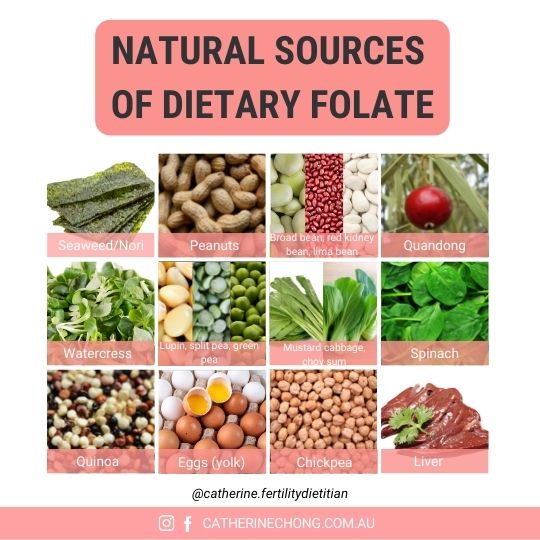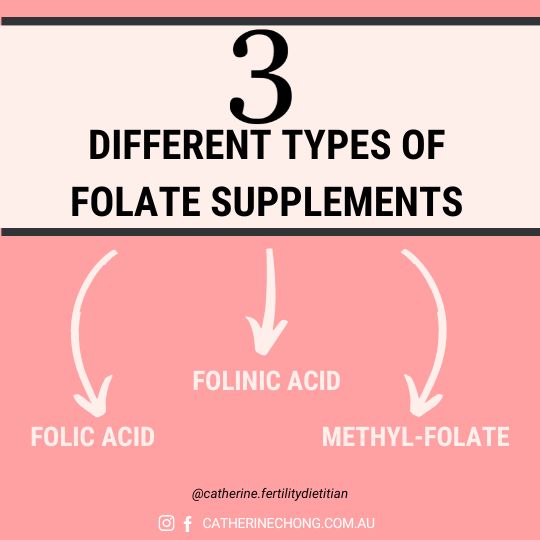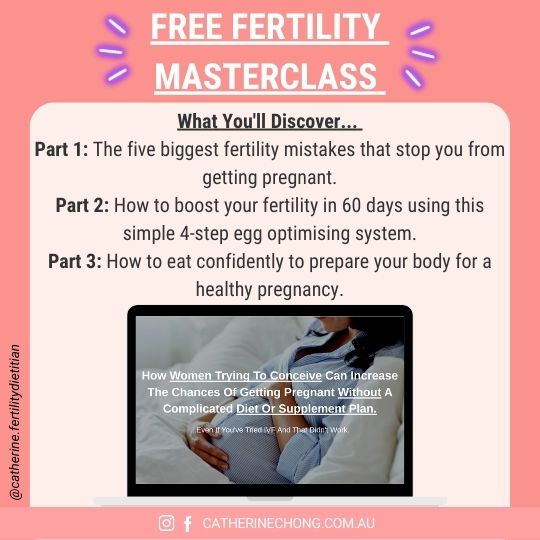Best Folate Foods For Pregnancy What You Should Know
What’s Folate?
Folate is a blanket term often used to describe vitamin B9 compounds and is a water-soluble vitamin. Folate can be found naturally in many foods. It is also fortified in foods and can be found in supplements in the form of folic acid, folinic acid, and the activated compound 5-methyl-THF (also known as L-5-MTHF, 5-MTHF, L-methylfolate, and methylfolate).
Why Do We Need Folate Foods For Pregnancy?
Your body needs folate to make DNA and other genetic material, and it is a crucial nutrient to support pregnancy for your cells to divide while growing a baby in the womb. It is vital that women trying to conceive consume enough folate, particularly at least six months in the lead up to pregnancy and during pregnancy.
When pregnant, the amount of folate that women require increases substantially, and this is due to the key roles that folate plays in DNA replication and regulating levels of homocysteine.
The Folate Reference Values for Australia and New Zealand
Women 19+ years: 400 mcg (DFE) per day
Pregnant women: 600 mcg (DFE) per day
*DFE – Dietary Folate Equivalent
During pregnancy, folate helps to ensure healthy cell growth and development, which is especially important throughout the embryonic and foetal stages of pregnancy.
Inadequate folate intake, particularly in these early stages of pregnancy, increases the risk of abnormalities in the mother and foetus. For mothers, folate deficiency can lead to anaemia and peripheral neuropathy (damage in the nerves close to the brain and spinal cord). For a foetus, folate deficiency can result in low birth weight, preterm delivery and delayed growth.
Another well-known risk of folate deficiency during pregnancy is the increased risk of neural tube defects, such as spina bifida and anencephaly. These neural tube defects occur when parts of the spine, brain or skull do not form correctly due to inadequate folate availability during the first 12 weeks of pregnancy.
Over the years, research has also found that oral contraceptives impair folate metabolism in women who use oral contraceptives. The body’s folate level is significantly lower while on the pill; it takes about three months to replenish the folate store. If you come off the pill and begin trying to get pregnant immediately, it may be essential to check your folate levels and ensure they are at an optimum level first.
What Foods Provide Folate For Pregnancy?

Folate is naturally found in many foods:
- Liver (chicken and lamb)
- Vegetables (seaweed, Chinese flowering cabbage, Chinese cabbage, rocket, broccoli, spinach)
- Fruits (Quandong, Australian Wild Peach)
- Grains (quinoa)
- Nuts (peanuts)
- Beans, legumes and peas (lima bean, broad bean, kidney bean, lupin, split pea, chickpea and green pea)
- Chicken egg yolk
*The above is based on the Australian Food Composition Guide – Foods containing natural folate.
**High liver intake while trying to conceive or during pregnancy is not recommended due to the risk of vitamin A toxicity. Be sure to check the safety amount and the frequency of intake with a fertility dietitian.
What About Folic Acid Supplements?

Current Australian guidelines recommend that women who are planning to become pregnant take 400 micrograms of folic acid through daily dietary supplementation, ideally at least one month before conception until the end of their first trimester.
There is strong evidence that shows folic acid supplementation of 400 micrograms per day during preconception and in the first three months of pregnancy can help to reduce the risk of neural tube defects.
People With The MTHFR Gene Variant
If you have discovered that you carry the methylenetetrahydrofolate reductase (MTHFR ) gene variant, taking a different folate supplement may be more suitable. The MTHFR gene variation means your body may have an impaired ability to convert the typical folic acid supplement to its active form. For this reason, taking a dietary supplement combining “active folate” (methyfolate) may be ideal.
The Bottom Line
Folate deficiency can lead to severe problems when you’re trying to conceive. It’s best to see your doctor to have your folate level checked by having a blood test as soon as you’re trying to start a family. It’s also recommended that you take a folic acid supplement of 400 micrograms per day at least three months before conception and focus on increasing the best source of folate from your diet.
Need Further Help?
To determine the optimal folate supplement for your needs, schedule a consultation with Dietitian Catherine Chong. Benefit from a tailored prenatal supplement strategy and a comprehensive nutrition plan, ensuring the best foundation for a thriving pregnancy.
You May Also Be Interested In
Disclaimer: Content on this website is provided for information purposes only and should not be replaced with medical advice. We recommend you discuss with your healthcare providers (doctor, dietitian, pharmacist, etc.) any medical questions for diagnosis and treatment, dietary plan, or use of any medications and nutritional supplements before you make any changes. DietitianChong Pty Ltd shall not bear any liability for reliance by any user on the materials contained on this website.

